Share
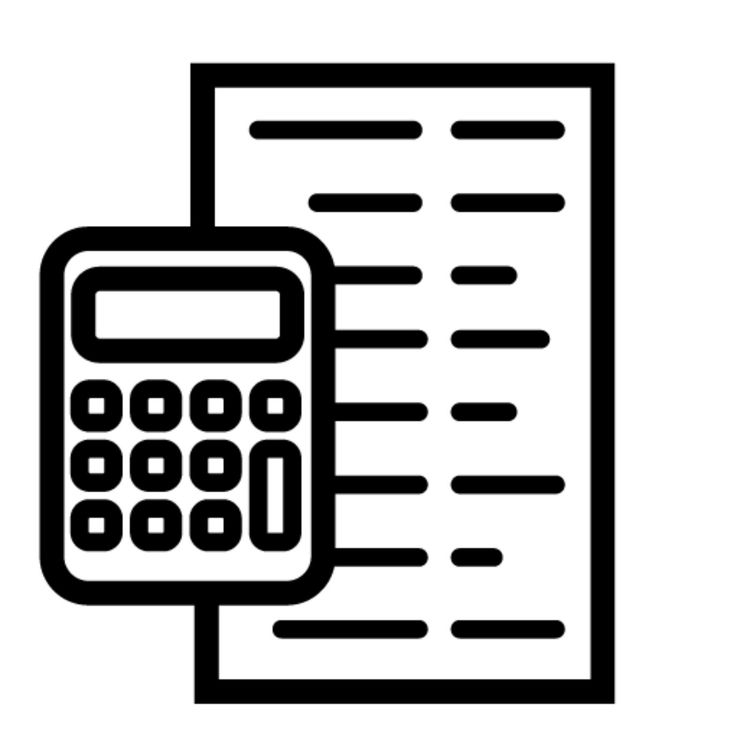
Future Fluent
What AI Can--and Can't--Do in Math
Season 1, Ep. 4
•
Among the most controversial topics in AI is just this: What role do we want AI to have in teaching and learning math? In this episode of Future Fluent, Betsy Corcoran and Jeremy Roschelle talk with Dan Meyer, one of the most outspoken and thoughtful critics of math education and how we're using technology. Learning isn't just "knowledge work," or pouring facts into students heads, Dan says. It's social work. And can --or should-- AI help with that?
Ready to dive in? Check out these great resources on teaching math and artificial intelligence.
- Mathworlds, a substack by Dan Meyer
- “Teachers Told Us They’ve Used AI in the Classroom. Here’s Why.” EducationWeek
- “Using Artificial Intelligence Tools in K-12 Classrooms,” RAND
- “Is there a problem with Mathbots?” EdSurge
- Hack Education, blog by Audrey Watters
- GSV’s AI News & Updates (substack), by Claire Zao
What’s Your Ed At, blog by Edward Zitron
More episodes
View all episodes
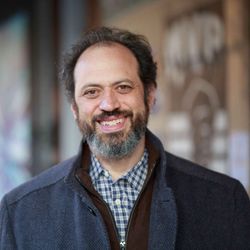
1. What Happens When the World is Built on Stacks of Wizards
32:20||Season 2, Ep. 1How do you work with a "wizard"? Season two of Future Fluent kicks off with a provocative interview with Ethan Mollick, a professor, writer and deep observer of the fast evolving relationship between artificial intelligence, learning and the future of work. Agentic AI, Mollick observes, is a collection of wizards that collaborate to accomplish tasks -- even if we don't exactly understand how they do that. When should we trust wizards? What happens when we do not? And what are the implications for how we learn and teach? Want more? Here’s how you can follow Ethan Mollick’s work and check out other references we talk about in this show: One Useful Thing: A Substack by Ethan Mollick including “On Working With Wizards” Co-Intelligence: Living and Working with AI by Ethan Mollick, April 2024GDPval, paper by OpenAI Cognitive Apprenticeship: Making Thinking Visible by Allan Collins, John Seely Brown and Ann Holum (1991) The Bitter Lesson (in AI) by Rich Sutton, March 13, 2019In the Age of the Smart Machine: the Future of Work and Power by Shoshana Zuboff, 1989.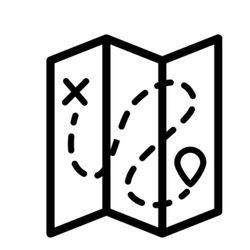
14. What We've Learned About AI
24:45||Season 1, Ep. 14So what will it take for people to be "fluent" in the future? In this wrap-up of season one, Betsy and Jeremy compare notes on what we've heard from the guests. One strong throughline: it's not the technology that matters -- it's what people do with the technology. It's how we purposefully building human agency as we experiment with this new tool. Betsy and Jeremy also talk about the questions they *didn't* explore this season -- and how to examine them in the autumn when we pick up with Season 2. Got thoughts? Drop a note on LinkedIn.Thank you to all our listeners!This concludes season 1 of Future Fluent. We hope you enjoyed tuning in each week, and stay posted for more exciting news soon!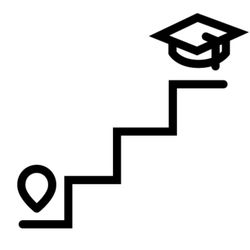
13. What It's Like When Every Student Does Computer Science
29:35||Season 1, Ep. 13The Gwinnett County school district in Georgia takes computer science very seriously. Its 183,000 students in 142 schools get rolling in a rigorous computer science curriculum in Kindergarten and goes through 12th grade. Even better--students are solving hands-on, real problems, says Sallie Holloway, the county's director of AI and computer science. But that's old news. In this episode of Future Fluent, Jeremy Roschelle and Betsy Corcoran probe into what's next in Gwinnett--namely how they are building human-centered AI practices.Want to dig into what’s going on in AI in Gwinnett County’s public schools? Gwinnett provides an overview of its computer science and AI approach here.Here’s the Gwinnett County Public Schools’ Human-Centered Artificial Intelligence position document, with specific sections written for students, staff and families. Here’s how Gwinnett is trying to prepare students for college and technical careers. And finally for a few more general overviews, take a look at: A feature on CBS Morning News (August 2023) EdWeek: Building AI literacy, what one district has learned (2023)
12. Reading the Context: Becoming Fluent in AI through Play
43:36||Season 1, Ep. 12We've moved from the "age of Enlightenment" to the "Age of Entanglement," says John Seely Brown, a long-time leading thinker, technologist and scholar on learning. In this episode of Future Fluent, Jeremy Roschelle and Betsy Corcoran go the source: JSB has done it all, from working at a bookie in high school to managing Xerox PARC, advising technology leaders and publishing more than 100 papers and books, many of which are on learning. JSB has spent his career experimenting -- and yes, playing -- with how the technology we build shapes the way we work and learn. What he's learned along the way? That learning, much like being part of a jazz group or surviving in the wilderness, involves constantly questioning and reexamining everything around us. "The notion of looking for the solution -- or even the (right) prompt doesn't compute anymore."So much to explore! John Seely Brown has published over 100 papers in scientific journals and nine books including coauthoring the acclaimed, The Social Life of Information (HBS Press, 2000) with Paul Duguid, which has been translated into nine languages. You could dip into John Seely Brown’s website, which is packed with slides from past presentations. Or take a look at any of these publications: A New Culture of Learning: Cultivating the Imagination for a World of Constant Change by Douglas Thomas and John Seely Brown, 2011. Design Unbound: Designing for Emergence in a White Water World, Volume 1: Designing for Emergence (Infrastructures) by Ann M. Pendleton-Julian and John Seely Brown, 2018. Design Unbound: Designing for Emergence in a White Water World, Volume 2: Ecologies of Change (Infrastructures) by Ann M. Pendleton-Julian and John Seely Brown, 2018.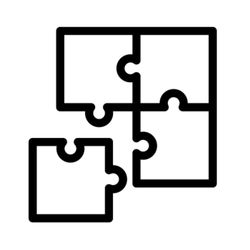
11. How to Give Feedback on 500 Million Sentences
39:15||Season 1, Ep. 11We know how to teach people to improve their writing--but it takes a lot of work. In this episode of Future Fluent, Betsy Corcoran and Jeremy Roschelle talk with Peter Gault, the founder of nonprofit Quill, which gives students feedback on 500 million sentences a year. Quill's been using AI for years and is now sharing its "playbook" on how to build ethically -- and effectively -- with AI.Here are hefty but important resources around AI and writing. Let’s start with the newest one: In our interview, Peter Gault describes a playbook that Quill.org has just created describing its approach to the ethical development of AI. You can check it out here. We also discussed the National Reading Panel's 449-page report on what works and doesn't work in literacy. It’s a 25-year old classic and you can get it here. There are a ton of great ideas in this report about how to apply AI to advance student learning.Journalist Peg Tyre, a long-time collaborator of Quill, wrote a powerful piece about how to teach writing, “The Writing Revolution,” for The Atlantic in 2012. Check it out here.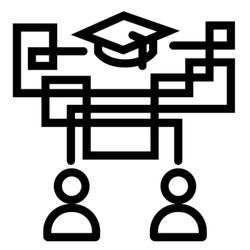
10. The Hardest Part of Using AI for Good
36:23||Season 1, Ep. 10This year Jeremy and Betsy travelled to San Diego to record our podcast live at ASU-GSV Summit--the industry gathering that spotlights emerging technologies for education. In the conference's "podcast zone," they talked with Jason Green, cofounder of YourWay Learning. The conversation focused on the hardest aspect of emerging technology--changing the culture of teaching and learning. How can educators feel "safe" to try new practices? And could a simple paper sign, posted on class door, change school culture? Join us to learn what the paper sign said and how it helped educators to become better innovators.If you’d like to go deeper, check out futurefluent.net and these resources! Blended Learning in Action: A practical Guide Toward Sustainable Change by Catlin R. Tucker, Tiffany Wycoff and Jason T. Green. Ideas, examples and tips for how to use technology to reach students. Machines of Loving Grace, an essay by Dario Amodie, cofounder of Anthropic. Unfortunately, it seems to have vanished from the web. Here is Fast Company’s assessment of the essay. One Useful Thing, a substack by Ethan Mollick Co-Intelligence: Living and Working with AI, by Ethan MollickKing: A Life by Jonathan Eig. A riveting account of the life of Martin Luther King Jr. This won the 2024 Pulitzer Prize for biography.
9. Can AI measure what students really know?
35:19||Season 1, Ep. 9Many companies are building tutors. To build a good tutor requires figuring out students already know and what they are learning. Is AI up to this task? On this episode, Jeremy Roschelle and Betsy Corcoran plunge into the murky issues around using AI for assessment with Kristen DiCerbo, the chief learning officer at Khan Academy. Kristen shares why game-based assessments haven’t yet become the best way to measure students’ learning. And we ask: How optimistic should we be that AI can improve assessment over the next 10 years? Tune in for an expert perspective on the hope and hype of using technology to measure learning.If you’d like to go deeper and explore issues around assessment, check out these resources! Brave New Words: How AI Will Revolutionize Education (and Why That’s a Good Thing), by Salman Khan Psychometric Considerations in Game-Based Learning by Robert J. Mislevy, et.al., 2016. Focus on Formative Feedback by Valerie J. Shute, March 2008The Test: Why Our Schools are Obsessed with Standardized Testing–But You Don’t Have to Be by Anya Kamenetz, 2016. The Big Test: The Secret History of the American Meritocracy by Nicholas Lemann, 1999 Playful Testing: Designing a Formative Assessment Game for Data Science by an interdisciplinary team including Jeremy Roschelle, 2022
8. How Playing with AI Can Build Human Agency
32:16||Season 1, Ep. 8How can learning to use AI be more like, well, what happens at a skate park? This week on Future Fluent, Betsy Corcoran and Jeremy Roschelle explore how to build "human agency" with Yusuf Ahmad, the cofounder and CEO of Playlab.ai. At a skate park, individuals practice their own skills and learn from one another. That's just what's happening at Playlab.ai, a nonprofit where educators build AI tools to support their unique approach to teaching. By playing and iterating with AI, both individually and in community, educators change their relationship with technology and strengthen their sense of agency. AI is a different kind of technology than educators have experienced before, he argues. But the way to harness it begins with encouraging diverse people and communities to play.Want more? Take a look at futurefluent.net and these sources! Playlab.ai is a nonprofit organization building tools that help educators and students play with AI and build tools that work for them. Tinkering Toward Utopia, by David Tyack and Larry Cuban – and the commentary, “Why School Reform Is Impossible,” by Seymour Papert The Master Switch: The Rise and Fall of Information Empires, by Tim WuTeaching to Transgress: Education as the Practice of Freedom, by bell hooks Twenty Things to do with a Computer, by Seymour Papert and Cynthia Solomon, 1971. (PDF of original paper.) 20 Things to do with a Computer Forward 50 (on the work of Seymour Papert & Cynthia Solomon) by Gary S. Stager, 2021.
7. Zen and the Art of Mastering AI Trends
39:30||Season 1, Ep. 7Whoooooosh. Okay, so that isn't really the sound of the news about AI rushing past--but It's easy to feel like it is. And as we scramble to keep up with trends, how do we stay focused on what really matters? This week on Future Fluent, Jeremy Roschelle and Betsy Corcoran talk with Claire Zau, a partner at GSV Ventures who publishes a widely read newsletter on the latest in AI. Just a few themes? Metacognition laziness, AI programs that share scents, and Jeremy's favorite book of all time.Want more? Check out futurefluent.net and these references:Claire’s AI and Education newsletter by Claire Zau ASU+GSV Summit and AI Show April 5-7, San Diego (free registration here) EdTech Insiders - a newsletter, podcast and events AI for Education Resource HubY Combinator YouTube ChannelBG2 PodHard Fork PodcastZen and the Art of Motorcycle Maintenance, by Robert Pirsig GTC Keynote With NVIDIA CEO Jensen Huang Beware of Metacognitive Laziness: arXiv